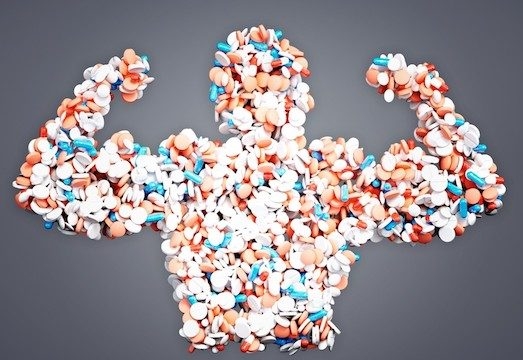Peptides are not a new invention of mankind. Rather, people have finally learned to use, so far very little, these compounds in medicine and cosmetology.
For the human body, peptides – they are a kind of messenger molecules. They are produced by all cells in order to interact between different systems – endocrine, immune, nervous.
Scientists have determined that by combining certain amino acids, it is possible to create many synthetic peptides with different properties. What peptides are and how they work, I figured out estet-portal.com.
Which peptides are especially important for youthful skin

From the point of view of biochemistry, peptides are protein molecules, more precisely, even their small fragments with a small amount of amino acids. There can be two or even several dozen of these amino acids; they are linked to each other by peptide bonds.
Follow us on Instagram!
In cosmetology, it is customary to use peptides with no more than 10 amino acids. Another name for them – oligopeptides, which is intended to emphasize how few amino acids they contain.
Our body uses approximately 20 different amino acids to synthesize peptides, arranging them in different sequences. Scientists believe that thousands of different combinations can be obtained from this amount, and they are doing this by creating synthetic peptides with different properties.
Peculiarities of the use of drugs with peptides in cosmetology
Each amino acid in the – like a letter in a word. Their alternation determines the functions of the peptide. Changing the order of their placement leads to the emergence of new properties for it. Each tissue in the body needs its own peptides, and the order of alternation of amino acids in them allows you to determine the direction of action of these molecules – whether they will provide antioxidant or immune protection, whether they are aimed at the skin or other organs and systems.
Among the most important peptides for the skin and the body as a whole – regulatory, as they are necessary to maintain homeostasis.
The vital balance for all organs is maintained by these valuable peptides, which contain only 2-4 amino acids. They are completely safe, because the body does not form antibodies against these peptides.
Among their functions:
• affect the processes of division, maturation, cell death;
• maintain a set of enzymes necessary for life in cells;
• reduce the rate of cell apoptosis.
Thus, if a cell's functions are reduced for some reason – these peptides act as stimulants; if the functionality has increased unreasonably – under the influence of peptides, it is normalized. Therefore, regulatory peptides – an essential component of preparations intended for skin rejuvenation.
Peptides of youth: the role of proteins in the rejuvenation of the body
Which peptides are most often used in anti-age products
Some peptides not only control cellular processes, but are also able to influence more global processes in the skin – for example, to control the course of inflammation, increase or decrease the production of pigment, participate in the synthesis of proteins and, accordingly, in neocollagenogenesis.
• Carnosine. This is a dipeptide with strong antioxidant properties. For use in cosmetic preparations, it is very convenient due to its water solubility. It is able not only to cope with free radicals, but also to bind heavy metal ions, which quickly age the skin in polluted city air.
Another valuable property of – control of wound healing so that scars do not form at the site of inflammation. Therefore, it can often be found in preparations intended for the rehabilitation period after invasive procedures.
• GHK-Cu. Tripeptide containing copper. Its valuable property for aging skin – it is the ability to influence the reconstruction of the skin. It stimulates fibroblasts to produce extracellular matrix components. It enhances the activity of cells responsible for the formation of new capillaries in damaged areas of the skin. It stimulates the formation of collagen and moisture-retaining molecules.
Scientists are actively developing other synthetic peptides – analogues of natural ones, and then introduce them into cosmetology practice.
Read also: Aurélie Guyot: about peptides and scientific discoveries that can slow down skin aging







Add a comment